Pride Reads: “Let’s Talk About Love” by Claire Kann
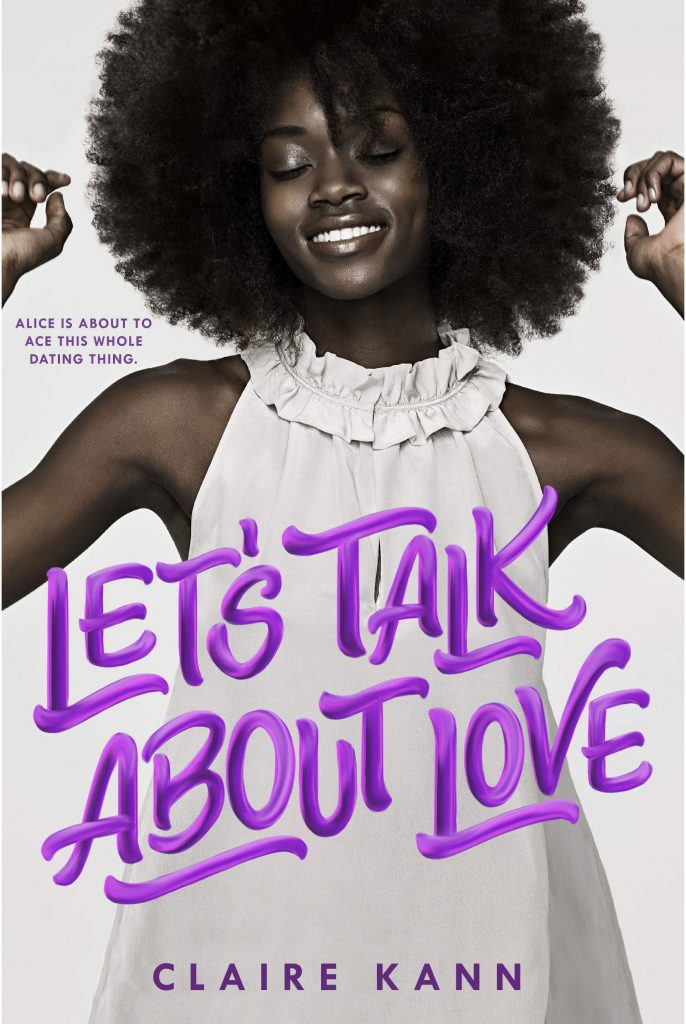
When I realized that my list of books for Pride Reads was a little lopsided in favor of one part of the community, I took to Twitter asking for recs. Let’s Talk About Love, featuring a black biromantic asexual protagonist, was recommended multiple times, so I immediately bought it for my Kindle and started reading. My feelings are…complicated.
First, a story. The first time I read Twilight, I actually liked it. I can’t remember why, but I did. It wasn’t until I read the trash fire that is New Moon that I realized the issues with the series, which retroactively made me hate the first book. Why am I talking about Twilight in a post that’s completely unrelated to it? Let’s Talk About Love is the same way. I enjoyed the book while I was reading it. But when I sat down to think about it in order to write up this post, I realized that maybe I didn’t enjoy it as much as I thought.
Now, Let’s Talk About Love is nowhere near the problematic mess that I found Twilight to be. It’s mostly just disappointing. I’m ace, and finding books about ace characters isn’t exactly easy. In all the recommendations I got on Twitter, only three featured an ace protagonist. I ultimately chose this book because of the number of times it had been suggested. I appreciated the attempt to explain a lot of the things about asexuality – like how love does not necessarily equal sex, that attraction and arousal are different things, that asexuals can have and sometimes even enjoy sex but just don’t want it.
But while I related very strongly to Alice’s frustration over having to constantly defend the validity of her orientation, and feeling like she couldn’t tell people because they wouldn’t understand, I also felt very confused by it. And I don’t think I was confused because Alice is confused – because she is, that’s actually a core plot point. I think I was confused because it’s very contradictory.
Let me just say that it isn’t very representative of my asexual experience. My experiences are not universal, and obviously not all asexuals are the same.
Not to mention, this book falls into the all-too-common trap of conflict happening because people just can’t communicate. Most of the problems that occur between characters in this book could be solved if they just sat down and had a conversation. (Ironic that in a book with “Let’s Talk” in the title that the main character avoids conversations so often.) And honestly, throughout the book, it really bothered me that Alice just couldn’t tell Takumi that she was asexual. I understand that it’s a sore point for her, after her other relationships ended because of it, and that it can be frustrating because not a lot of people understand, but if you’re romantically interested in someone I think that’s a conversation that needs to be had.
I feel like a lot of people will enjoy this book. As I said, I enjoyed it in the moment. It’s just that the more I think about it, the more “off” it feels.
——-
Let’s Talk About Love by Claire Kann is published by Swoon Reads and is currently available wherever books are sold.
Don’t forget to check out my other Pride Reads!
Author: Jamie Sugah
Jamie has a BA in English with a focus in creative writing from The Ohio State University. She self-published her first novel, The Perils of Long Hair on a Windy Day, which is available through Amazon. She is currently an archivist and lives in New York City with her demon ninja vampire cat. She covers television, books, movies, anime, and conventions in the NYC area.
Help support independent journalism. Subscribe to our Patreon.
Copyright © The Geekiary
Do not copy our content in whole to other websites. If you are reading this anywhere besides TheGeekiary.com, it has been stolen.Read our

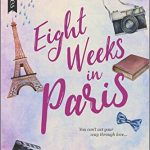
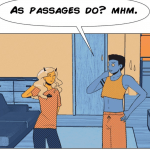
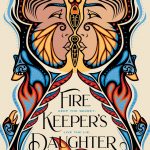
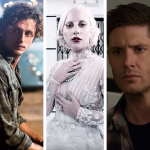

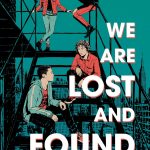
You’re right, it is still extremely rare to find books with ace and/or aro characters, especially it you’re like me and not interested in reading books where romance is the main plot.
Then again, that sometimes makes it easier to find books where you can comfortably identify with the protagonist, because the author just wasn’t interested in writing about romance or sex – e.g., like with the original Sherlock Holmes stories. Or with large parts of the Discworld series – even when there is supposed to be a romantic subplot, it’s written so perfunctory and almost like a parody from someone who doesn’t like romance plots, so that I sometimes really think dear Sir Terry must have been playing for our team. Especially his author avatar, the old witch Esme Weatherwax comes across as aro-ace, even if that was originally just a character trait to make her contrast against her friend, the cheerfully promiscuous mother of a dozen sons, the equally old witch Granny Ogg.
Terry Pratchett wasn’t good with explicit queer representation, though. One of the later books, where he actively tried, and which can be read in isolation, is “Monstrous Regiment”. (It ties in with the Watch novels, but the characters from those novels mainly just show up as a deus ex machina in the end to keep things from ending in tragedy. The primary characters and setting of this novel don’t overlap with the rest of the Discworld canon. This book, while still humorous, is also a good deal darker than most of the other Discworld novels, due to the themes of war and deeply mysogynist culture.) Among the main characters there’s a lesbian couple and one or two characters who I would think were meant to be read as genderqueer if I could be sure Sir Terry knew what “genderqueer” means. (SPOILER:
Almost all the major characters are girls and other afab people who pretend to be male to join the army. But one character has spent almost her entire long life that way, and is far more comfortable in the male persona by now; and the other also stands out in being very at ease while presenting as male and he/she only comes out to the others very belatedly, when a girl he/she seems to have a crush on remarks on the beauty/feminity of another woman – so it comes across like the genderqueer character was trying to say “You like girls now? I have boobs, too, under this uniform!”
SPOILER END.)
This book is one of the Discworld novels that don’t have a romantic subplot at all, so the characters’ sexualities don’t really come up much. The reason I recommend it here is the main protagonist Polly, who for some not explained reason is absolutely sure that she’ll never marry (granted, most of the young men of her country are dead, but there are some disabled veterans and her inheritance of a prosperous tavern would make her a very attractive marriage prospect for these men who are no longer able to earn a living by farming); she doesn’t ever show a positive attitude towards or about any male other than affection for her mentally disabled brother (and she only ever makes one positive comment about a man’s looks – good teeth – …right before kicking him in the groin because he’s a privileged asshole); but at the same time, her reaction to the above mentioned lesbian couple reads like the idea that girls can be attracted to each other also never entered her mind before. So, she’s not explicitly labeled as asexual (bit hard to do in a quasi-19th-century setting), but you can make a strong case that she is.
Another recommendation would be the Jacob’s Ladder trilogy by Elizabeth Bear (“Dust”, “Chill”, “Grail”), which are transhuman / lost generation ship type sci-fi by genre, but at least the first novel is narrated like a classic Arthurian questing adventure (i.e. the characters think and behave like they’re in a quasi-medieval high fantasy setting, the various computer A.I.s are referred to as angels, the radioactive coolant leak is described as a mythic monster, etc.). There are quite a lot of queer characters (lesbian, bi/pansexual, genderqueer) and the secondary protagonist (who becomes the primary proagonist in the second and third book) is Sir Perceval, an explicitly asexual (“asexed”) young female knight who has a romance plotline with the more-or-less lesbian protagonist of the first book. (“More-or-less” because she has a sex scene with a genderqueer / voluntarily intersex character who offers to get rid of their penis for the encounter, but she tells them that it’s okay. That genderqueer character later has a romantic relationship with a male character who previously thought he was straight, too. So sexuality is generally treated as fairly fluid in these books.)
Elizabeth Bear’s stronger points are plot, unique settings and political concepts (in this case social darwinism / libertarianism and Christian extremism turning into feudalist oppression VS. as-humane-as-possible but extremely anti-religious democratic communism), not so much very engaging characters, so memorable characterization isn’t really where these books shine. And Perceval’s asexuality is not closely examined – it’s just there and that means that the romance is not going to be consumated even though the characters are in love and want to stay together, and that’s that. Besides, it goes along well with the whole Arthurian theme that Sir Perceval has taken a vow of celibacy. And SPOILER:
I fear it originally was just included to take the squick out of the romance plotline in the first book, because it eventually turns out that the two young lovers are half-sisters. So it seems like this romance is presented as okay because nothing sexual is ever going to happen between them, not because they didn’t grow up together so there is no problem of power-abuse or grooming. And then the lesbian protagonist makes a heroic sacrifice and the issue becomes moot anyway. (This feels less like “bury your gays” because there are several other queer characters. But a lesbian reader may feel otherwise.)
SPOILER END.
Still, it’s one of the very few books I’ve ever read where there is an asexual major character but that asexuality isn’t presented as a huge issue and source of angst that consumes the entire plot. The plot here is mosly about something other than romance, so the asexualiy feels more naturally integrated, just one facet of the character and far from their main problem in life.